SUMMARY
This is AI generated summarization, which may have errors. For context, always refer to the full article.

The P100-million contract of the Philippine Health Insurance Corporation (PhilHealth) with the Philippine Red Cross (PRC) to provide Filipinos affordable coronavirus tests is now the priority of the Department of Justice (DOJ) for contract review.
“We’re giving this our preferential attention. Wait for it,” Justice Secretary Menardo Guevarra told reporters on Thursday, October 22.
Guevarra said the DOJ will issue its opinion on the contract “within the week.”
What’s the deal?
In May, resigned Philhealth chief Ricardo Morales and PRC chairman Senator Richard Gordon signed a Memorandum of Agreement (MOA) tapping PRC to provide COVID-19 tests for Filipinos. Each test package cost PhilHealth P3,500.
On May 5, PhilHealth made a P100-million advance payment to PRC.
Section 88 of the Government Auditing Code of the Philippines says the government shall not be obliged to pay an advance payment for services and supplies not delivered yet. Under the Bayanihan Law 1, which Gordon voted for, government agencies can partner with the PRC but on a reimbursement basis. The PhilHealth law also says medical providers’ claims shall be reimbursed.
Asked if the advance payment will be part of the review, Guevarra said, “The whole Memorandum of Agreement but more particularly on procurement issues.”
The PhilHealth-PRC contract also provides for a revolving fund of P100 million, meaning that upon PRC’s notice of the depletion of the initial funds, PhilHealth shall again pay PRC another P100 million.
If there is a remaining balance upon the termination of the contract, this will remain with the PRC “as stranded costs in case other people need to be tested, and in the event that test failures or errors resulted.”
In an earlier response to Rappler, PRC cited Section 18 of the Universal Health Care (UHC) Act which says, “PhilHealth shall endeavor to shift to paying providers using performance-driven, close-end, prospective payments based on disease or diagnosis related groupings and validated costing methodologies and without differentiating facility and professional fees.”
Under the UHC rules, prospective payment is a “method of reimbursement in which payment is based on a predetermined, fixed account.”
Guevarra said it was new PhilHealth chief Dante Gierran who requested the DOJ review.
Criminal or civil liability?
Guevarra said they are looking into “more of civil liability” in the review.
“It’s all about the validity of the MOA. The DOJ opinion was requested by PhilHealth before it makes a decision to pay its indebtedness to the Philippine Red Cross,” said Guevarra.
Republic No. Act 9184 or the Government Procurement Reform Act has a penal clause, but mostly for offenses related to bidding.
The PhilHealth-PRC contract was a form of negotiated procurement. The MOA cited the Bayanihan Law 1 which specifically named the PRC as one of government’s possible partners in the coronavirus response, and Section 16 of the PhilHealth law which allows the agency to “negotiate and enter intro contracts” with health-related groups.
Guevarra said they were not ruling out criminal liability.
“We are not ruling out anything until we have completed a thorough review of the subject MOA and laws applicable to the said deal,” said Guevarra.
Philhealth mess
The DOJ-led task force earlier sued Morales and 8 other PhilHealth officials for graft, malversation, and tax violations over P2.7 billion worth of alleged anomalous Interim Reimbursement Mechanism (IRM) payments made during the pandemic. (CHEAT SHEET: Alleged PhilHealth anomalies uncovered in Congress probes)
The task force found that Morales and PhilHealth executives supposedly “designed” a plot to favor hospitals and clinics for the IRM payments.
Guevarra had earlier promised a continuing investigation and that “more names may be included and more complaints will be filed.” – Rappler.com
Add a comment
How does this make you feel?


![[Time Trowel] Evolution and the sneakiness of COVID](https://www.rappler.com/tachyon/2024/02/tl-evolution-covid.jpg?resize=257%2C257&crop=455px%2C0px%2C1080px%2C1080px)



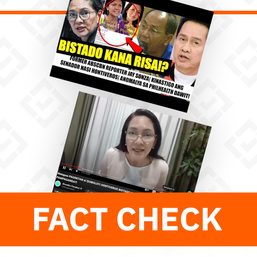

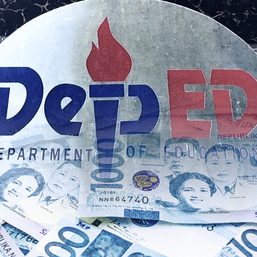
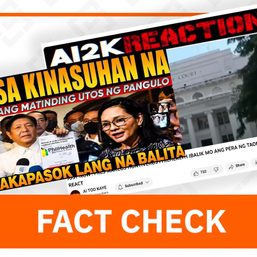

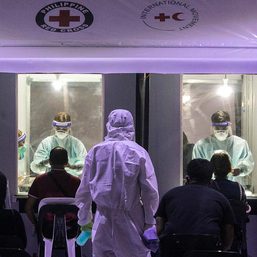
![[OPINION] The need to scrutinize the Philippine Red Cross](https://www.rappler.com/tachyon/2021/10/imho-redcross-sq.jpg?resize=257%2C257&crop_strategy=attention)
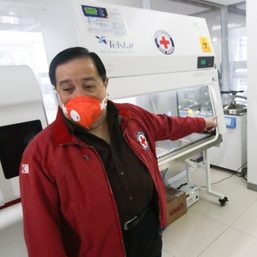

There are no comments yet. Add your comment to start the conversation.